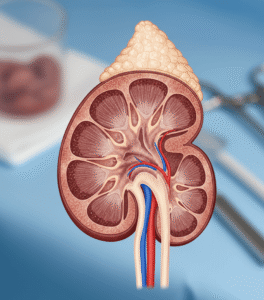The period following childbirth is often filled with joy, but it can also bring emotional challenges for new mothers. In South Korea, growing awareness of postpartum depression (PPD) and maternal mental health has led to the development of comprehensive postpartum mental health care programs. These initiatives — supported by hospitals, public health centers, and government agencies — aim to provide early intervention, counseling, and holistic support for mothers adjusting to life after delivery.
Understanding Postpartum Mental Health
Postpartum depression affects many mothers within the first few months after childbirth. It often goes beyond the typical “baby blues,” lasting weeks or months and interfering with a mother’s ability to care for herself and her baby. Symptoms can include:
● Persistent sadness or hopelessness
● Extreme fatigue or lack of energy
● Difficulty bonding with the baby
● Anxiety, panic attacks, or mood swings
● Changes in sleep and appetite
● Feelings of guilt, shame, or isolation
In Korea, social pressures, changing family dynamics, and limited community support can sometimes worsen these challenges. Recognizing this, both the Ministry of Health and Welfare and local governments have made postpartum mental health care a national priority.
National Government Initiatives
The Korean government has launched several policies and programs to promote maternal mental wellness:
● National Screening for Postpartum Depression: Public health centers now offer free or low-cost screening for mothers within a few months after childbirth. The Edinburgh Postnatal Depression Scale (EPDS) is commonly used to detect early signs of depression.
● Postpartum Counseling Support: Mothers identified at risk are referred to mental health specialists, psychologists, or social workers for individualized care.
● Integrated Maternal Health Centers: The government funds Healthy Family and Multicultural Support Centers, which offer counseling, childcare classes, and community-based therapy programs.
● Parental Education Programs: Prenatal classes now include sessions on mental preparation for motherhood, teaching couples how to recognize and manage postpartum emotions.
● Awareness Campaigns: Public campaigns on national television and social media promote understanding of postpartum depression, aiming to reduce stigma and encourage help-seeking.
These nationwide efforts mark a major step toward normalizing conversations about maternal mental health.
Hospital and Clinic-Based Programs
Major Korean hospitals have developed specialized departments to address postpartum emotional health, often combining medical care with psychological support.
● Seoul National University Hospital: Operates a Maternal Mental Health Clinic that provides screening, therapy, and medication management when needed. It also runs family counseling sessions to educate spouses on emotional support strategies.
● Asan Medical Center: Offers postpartum psychiatric consultation services where psychiatrists and obstetricians collaborate to ensure safe mental health treatment during breastfeeding.
● Yonsei Severance Hospital: Provides psychological counseling programs within its maternity wards, focusing on stress management, parenting adaptation, and emotional bonding between mother and baby.
● Regional Women’s Hospitals: Many local maternity clinics partner with community mental health centers to provide postnatal counseling and referral services.
Hospitals also increasingly use digital tools such as mobile apps for postpartum mood tracking, online support groups, and tele-counseling to reach mothers at home.
Role of Community Health Centers
Korea’s public health centers (보건소) play an essential role in identifying and supporting mothers struggling with postpartum issues.
● Mental Health Screening: Mothers are invited for checkups within three months of delivery. Staff use standardized questionnaires to assess mental health status.
● Home Visiting Nurses: Nurses trained in maternal mental health visit new mothers to provide emotional support, assess living conditions, and connect families to local resources.
● Group Therapy and Peer Support: Many health centers organize small group sessions where mothers share experiences, practice mindfulness, and learn stress-relief techniques.
● Childcare and Parenting Education: Programs teach coping strategies for newborn care, sleep routines, and balancing physical and emotional health.
By making these services easily accessible, community centers help prevent postpartum depression from going unnoticed or untreated.
The Growing Role of Digital Mental Health
As technology evolves, digital mental health platforms are gaining popularity among Korean mothers seeking convenient and confidential support.
● Mobile Counseling Apps: Offer chat-based therapy and mental health monitoring by licensed counselors.
● Virtual Support Groups: Mothers can join online communities where they share their struggles anonymously and receive encouragement.
● Telepsychiatry: Hospitals and clinics offer video consultations for mothers who cannot visit in person, especially during the postpartum recovery period.
● AI-Based Emotional Tracking: New apps use emotion-recognition algorithms to detect mood changes and alert users to seek help when needed.
These innovations have made postpartum care more accessible to younger generations familiar with digital communication.
The Importance of Family and Social Support
In Korea’s family-oriented society, spousal and familial support plays a vital role in a mother’s mental recovery. Increasingly, mental health programs include education for partners and family members:
● Fathers are encouraged to attend prenatal and parenting classes to understand postpartum changes.
● Family counseling helps relatives recognize symptoms of depression and respond with empathy.
● Social workers connect mothers to childcare services or volunteer networks that offer practical help, reducing stress from isolation or exhaustion.
This shared responsibility model ensures mothers feel supported emotionally and practically during recovery.
Challenges in Postpartum Mental Health Care
Despite progress, there are still barriers to providing consistent and comprehensive postpartum mental health care in Korea.
● Stigma Around Mental Health: Many mothers hesitate to seek help, fearing social judgment or being seen as “weak.”
● Regional Disparities: Rural areas often have fewer mental health specialists and support services.
● Limited Awareness Among Fathers: Some families still view postpartum depression as a “woman’s problem,” limiting emotional support at home.
● Time Constraints: Working mothers may find it hard to attend regular counseling or therapy sessions.
● Insurance Coverage: While some services are free, advanced therapy or medication may still pose financial burdens.
These challenges highlight the need for continued awareness, education, and policy expansion.
Future Directions and Policy Goals
Korea’s vision for maternal mental health continues to evolve, focusing on accessibility, inclusivity, and prevention.
● Expansion of National Screening Programs: Plans are underway to extend postpartum depression screening up to one year after childbirth.
● More Mental Health Professionals: Universities are training more psychologists and psychiatric nurses specializing in perinatal care.
● Integration with Childcare Systems: Daycare centers and pediatric clinics will increasingly include maternal wellness checkups.
● Insurance Reform: Broader coverage for therapy sessions and psychological assessments is being discussed.
● Research and Innovation: Universities and hospitals are conducting studies on hormonal, social, and genetic factors linked to postpartum depression, aiming for early detection and personalized treatment.
These steps reflect a long-term commitment to maternal mental well-being as part of public health.
Final Thoughts
Korea’s postpartum mental health care programs symbolize a crucial shift — from treating mental illness in silence to embracing emotional well-being as an essential part of motherhood. Through national policies, hospital innovations, and community engagement, more mothers are receiving the care they deserve.
● Supporting mothers means supporting families.
● Emotional recovery is as vital as physical healing.
● Korea’s commitment to postpartum mental health is shaping a healthier, more compassionate future.
As awareness continues to grow, these programs ensure that no mother has to face the challenges of postpartum depression alone — building a stronger foundation for families and communities across the nation.













